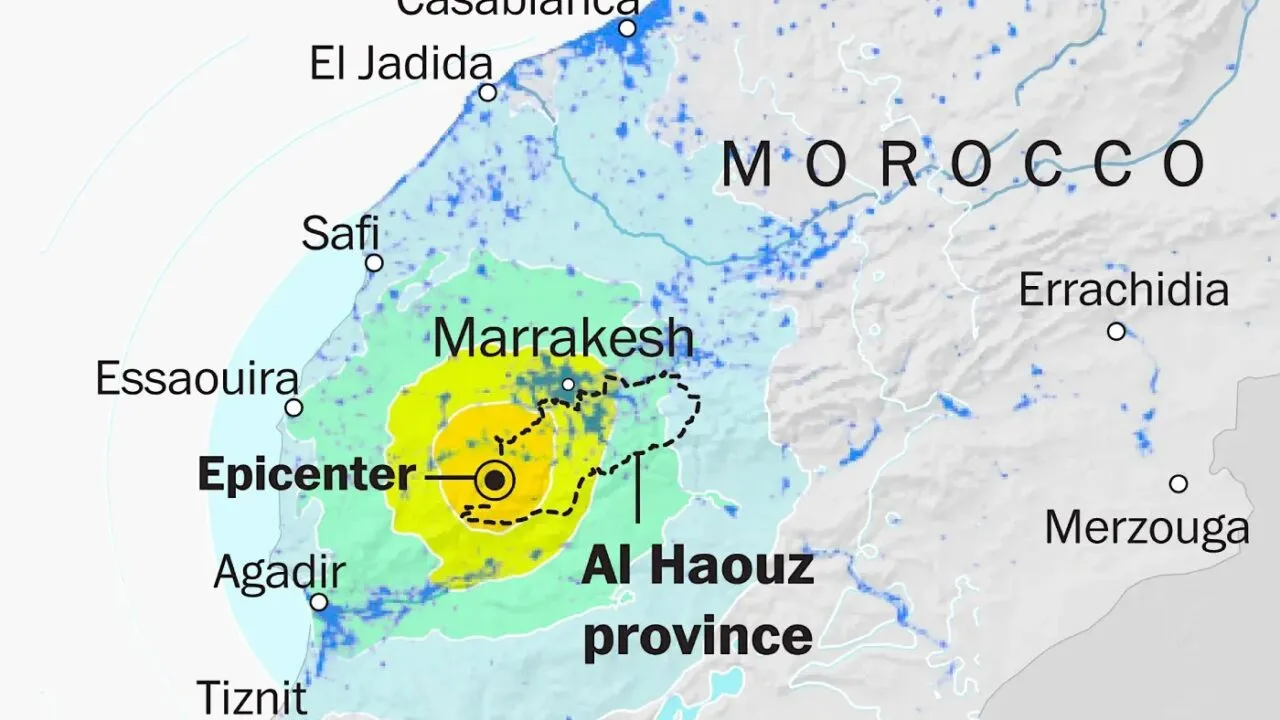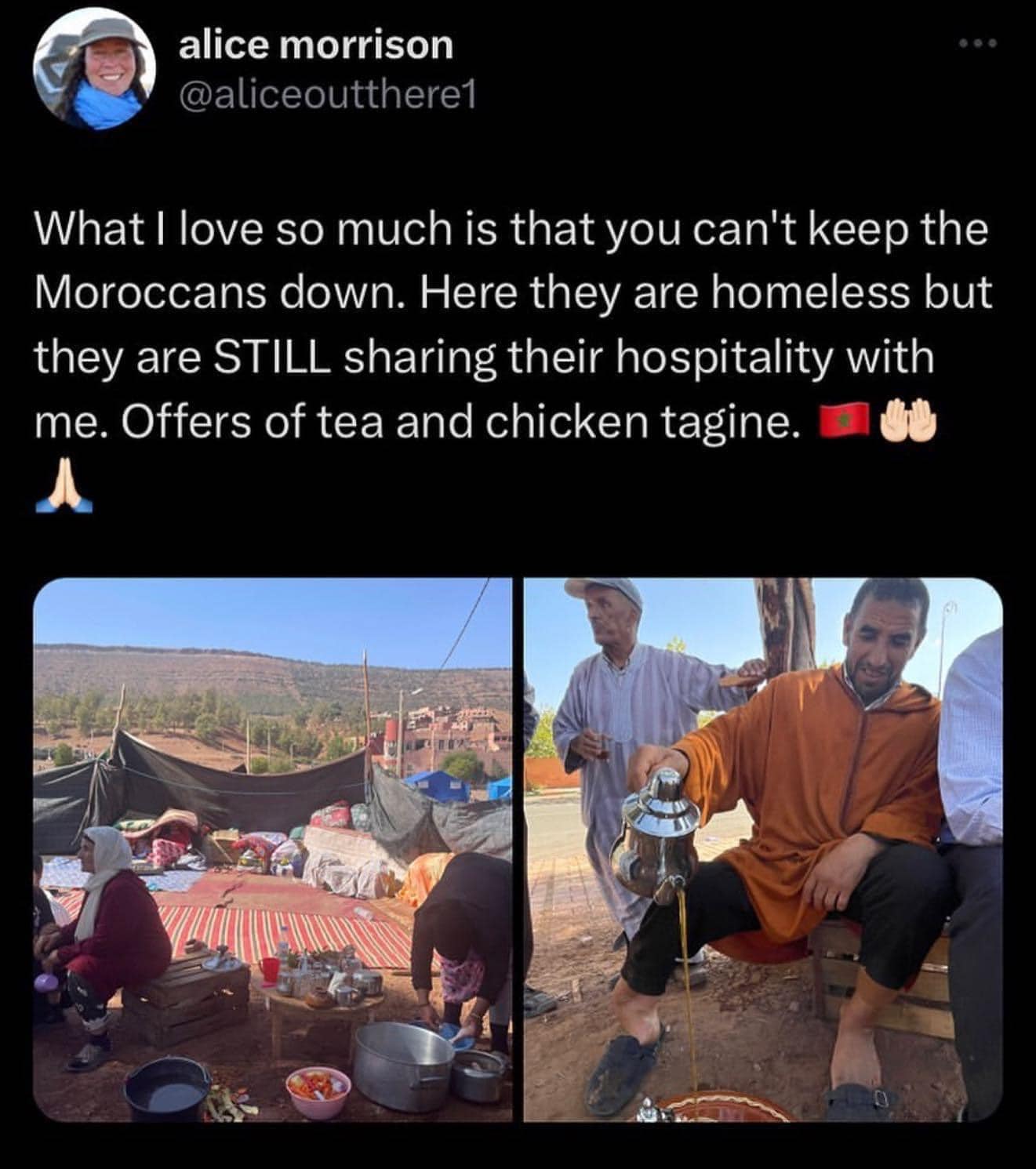On the evening of Friday, September 8, 2023, a significant earthquake with a magnitude of approximately 6.8 was felt in the southwestern region of Marrakesh, Morocco. This seismic event is the most intense the nation has experienced in over a century. The toll of casualties is still being assessed; as of now, approximately 3,000 individuals have lost their lives and nearly 6,000 have been injured. The majority of the impact was concentrated in the medina, the oldest section of Marrakesh and a UNESCO World Heritage Site.
Update about Moroccan Earthquake 30/09/2023
The current situation in Morocco is stable and calm. Discussions and concerns regarding the Moroccan earthquake have subsided. King Mohammed VI has taken all necessary measures and considerations in response to the event. The reconstruction efforts in Marrakech, which was one of the areas damaged by the earthquake, are nearing completion.
For those who are considering traveling to Morocco, there’s no need to cancel your plans. In response to the frequently asked question, Should I cancel my travel to Morocco? the answer is a definitive No. Furthermore, if you’re wondering about the safety of Morocco after the earthquake, the answer is Yes, it is safe.
Which areas are most affected?
The earthquake hit the Marrakech-Safi region, which includes Marrakech and the coastal towns of Safi and Essaouira. However, the hardest-hit areas are Al-Haouz, where the epicenter is located, and Chichaoua in the Marrakech-Safi region. Other affected provinces are Taroudant in the south, Ouarzazate in the east, and Azilal in the northeast. These areas are mainly rural.

These regions also have a historical Berber-speaking population, where languages like Tamazight and Tachelhit are still spoken today.
Is It Really Dangerous to Come To Morcco After The Earthquake ?
Based on my recent experience, it appears that the situation in Morocco, particularly in Marrakech, is stabilizing after the earthquake. While there was some damage in the older parts of the city, many areas, including the neighborhood where I stayed, seemed to be unaffected. Most businesses and daily activities were operating as usual, with some exceptions due to the King’s proclamation of three days of mourning.
If your travel plans don’t include visiting the mountainous regions near the earthquake’s epicenter, it seems reasonable for me to proceed with your trip. The locals are welcoming, and tourism is a crucial part of the economy, especially after the financial strain caused by Covid-19 restrictions in previous years.
I also noted that Fez and Casablanca, two other cities I visited, showed minimal signs of damage. This suggests that many parts of Morocco remain safe and welcoming for tourists.
Based on the information I’ve gathered from friends and acquaintances, it appears that most of Morocco’s major tourist cities have not sustained significant damage. These include Essaouira, Agadir, Tangiers, Rabat, and Chefchaouen.
- Essaouira: Known for its beautiful beaches and historic medina, Essaouira is approximately 191 km away from Marrakech.
- Agadir: Famous for its seaside resorts and modern amenities, Agadir is around 235 km from Marrakech.
- Tangiers: A gateway between Africa and Europe, Tangiers is located about 582 km from Marrakech.
- Rabat: The capital city of Morocco, known for its rich history and culture, Rabat is roughly 327 km away from Marrakech.
- Chefchaouen: Renowned for its blue-painted streets and mountainous backdrop, Chefchaouen is approximately 565 km from Marrakech.
Given the relatively limited impact on these cities, it seems reasonable for me to consider traveling to these destinations.
Tourism In Morocco After The Earthquake
It’s true that Moroccans have endured significant losses due to the earthquake, but even those most affected continue to extend their warm hospitality to tourists. Here’s a Twitter post that demonstrates how welcoming the Moroccan community remains.

Conclusion
Based on the information I’ve received and the resilience of Morocco’s key tourist cities, it’s clear that the country remains a captivating and safe destination for travelers. From the coastal charm of Essaouira to the vibrant culture of Rabat, each city offers a unique experience that’s waiting to be explored. Despite recent challenges, Morocco is bouncing back and its welcoming spirit is as strong as ever. Whether you’re interested in history, culture, or natural beauty, Morocco has something for everyone. Look forward to experiencing the richness and diversity that this beautiful country has to offer.
